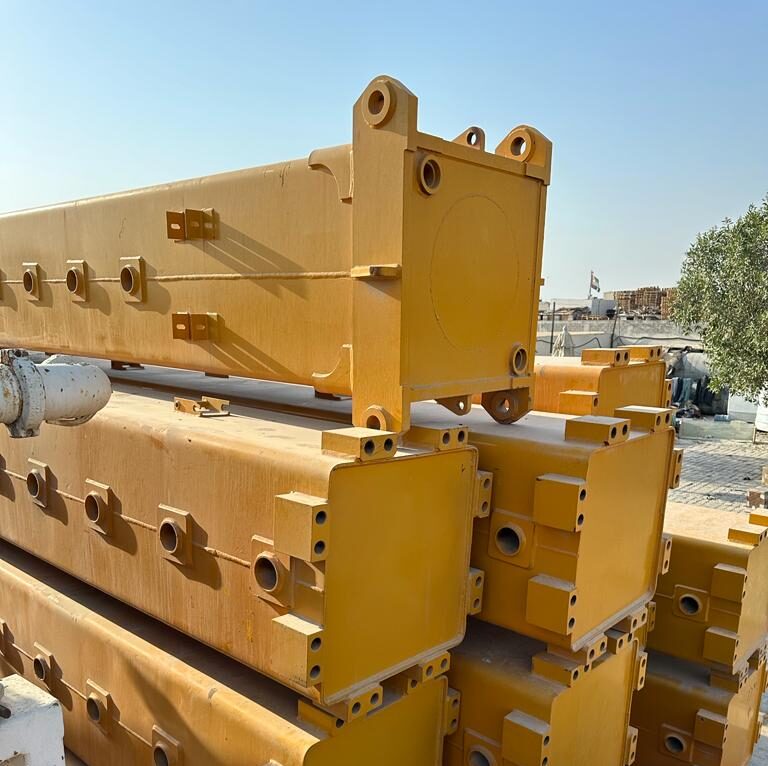
"Revitalizing Industry: The Crucial Role of Machinery Scrap Services in Sustainable Development"
In the ever-evolving landscape of industry and technology, the significance of machinery scrap services cannot be overlooked. As machinery becomes outdated or reaches the end of its operational life, the disposal of these assets becomes a critical consideration. This blog explores the pivotal role played by machinery scrap services in not only managing obsolete equipment but also in contributing to sustainable practices and resource conservation.
The Challenge of Outdated Machinery
The rapid pace of technological advancements in today’s world often renders machinery obsolete within a relatively short span. Industries are continually upgrading their equipment to stay competitive, comply with evolving regulations, or embrace more efficient and eco-friendly technologies. This leaves a considerable amount of outdated machinery that needs to be handled responsibly to avoid environmental hazards and make room for newer, more advanced equipment.
Machinery Scrap Services: A Sustainable Solution
Machinery scrap services offer a sustainable and environmentally conscious solution to the challenges posed by obsolete equipment. Rather than allowing old machinery to accumulate as waste in landfills or industrial yards, these services specialize in dismantling, recycling, and repurposing machinery components. This not only prevents the environmental impact associated with traditional disposal methods but also unlocks the potential for valuable resource recovery.
Resource Recovery and Circular Economy
One of the primary benefits of machinery scrap services is their role in resource recovery. The components and materials used in manufacturing machinery often involve the extraction of precious metals, minerals, and other valuable resources. Machinery scrap services facilitate the extraction and recycling of these materials, reducing the need for new mining and raw material extraction.
In essence, machinery recycling contributes to the principles of a circular economy. Rather than following a linear model of production, use, and disposal, a circular economy aims to keep resources in use for as long as possible, extracting maximum value from them and minimizing waste. Machinery scrap services play a crucial part in this process by extending the lifecycle of materials and reducing the demand for new resources.
Environmental Impact Reduction
The disposal of outdated machinery, if not managed properly, can have severe environmental consequences. Many industrial machines contain hazardous materials such as heavy metals, oils, and electronic components that can leach into the soil and water if not handled responsibly. Machinery scrap services adhere to strict environmental regulations and employ sustainable practices to ensure the safe and responsible disposal of these materials.
By opting for machinery scrap services, industries actively contribute to reducing their environmental footprint. This not only aligns with corporate social responsibility goals but also fosters a positive image among environmentally conscious consumers and stakeholders.
Job Creation and Economic Impact
Apart from the environmental benefits, machinery scrap services also contribute to job creation and economic growth. The process of dismantling and recycling machinery requires skilled labor, ranging from technicians and engineers to equipment operators. As the machinery scrap industry expands, so does the demand for skilled workers, creating employment opportunities and supporting local economies.
Additionally, the recovered materials can be reintroduced into the manufacturing supply chain, reducing the need for importing raw materials and contributing to a more self-sufficient and sustainable economy. This dual impact on both employment and economic development further underscores the importance of machinery scrap services in the broader context of sustainable practices.
Technological Innovations in Machinery Scrap Services
Advancements in technology have significantly improved the efficiency and effectiveness of machinery scrap services. Innovations such as automated dismantling processes, state-of-the-art sorting systems, and advanced recycling techniques have streamlined operations, making it possible to handle larger volumes of machinery in less time.
These technological innovations not only enhance the economic viability of machinery scrap services but also contribute to the overall efficiency of the recycling industry. The integration of smart technologies and data analytics allows for better resource management and more accurate material recovery, further minimizing waste and maximizing the value extracted from discarded machinery.
Conclusion
In conclusion, machinery scrap services play a vital role in shaping a sustainable and responsible approach to industrial equipment disposal. As industries continue to evolve and upgrade their machinery, the importance of managing outdated equipment in an environmentally conscious manner cannot be overstated. Through resource recovery, environmental impact reduction, job creation, and technological innovations, machinery scrap services contribute significantly to the broader goals of sustainable development.
Embracing these services is not just a practical solution for industries seeking to manage their equipment lifecycle responsibly but also a proactive step towards building a more sustainable future. By recognizing the value in what is often considered obsolete, industries can not only contribute to their bottom line but also to the well-being of the planet and future generations. Machinery scrap services, therefore, emerge as not just a necessity but a key player in the transition towards a more sustainable and circular industrial ecosystem.
Digital Marketing services in uae.
